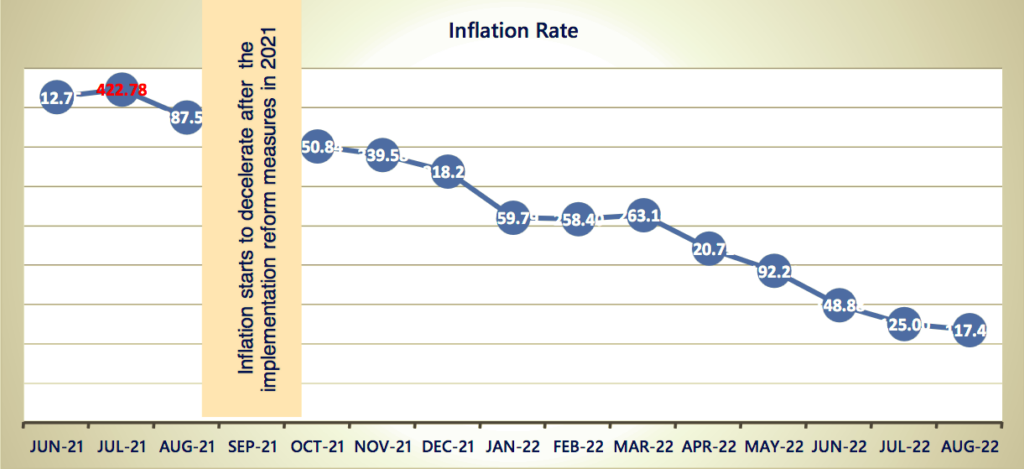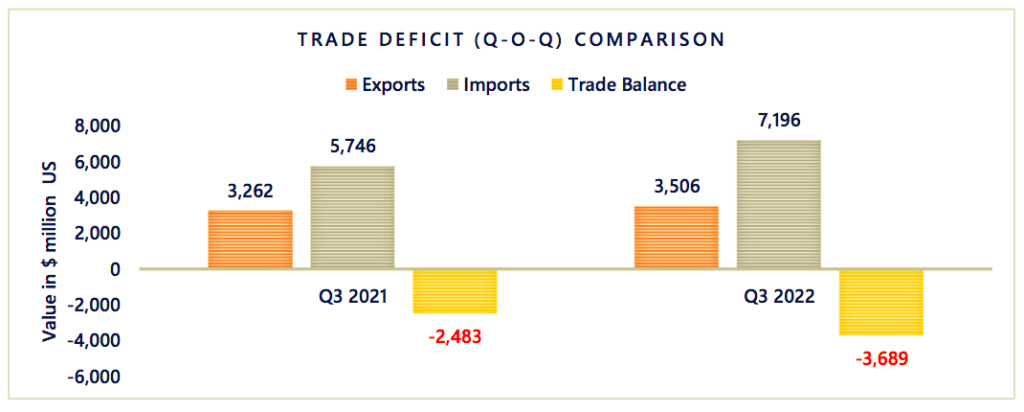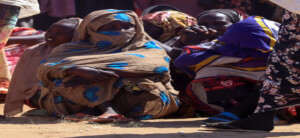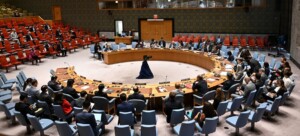Sudan Transparency and Policy Tracker report calls economic situation ‘grim’

Dark skies overhead a bus traveling through Sudan's Kordofan region (Photo: Sari Omer)
KHARTOUM –
A new report by the Sudan Transparency and Policy Tracker (STPT) states that the “December 2018 revolution created space to pursue major economic reforms. However, that space was abruptly taken away by the October [2021] coup. Today the economic situation is grim and is likely to worsen if military rule continues.”
Published on February 20, the Political Gateway for Salvaging the Sudanese Economy report argues that some progress was made during Sudan’s transition phase until October 2021, focusing on the country’s political and economic environment.
Nonetheless, “mismanagement of the economy has reversed this progress and exacerbated the cost-of-living crisis, price hikes, and recession. The near-term outlook is extremely uncertain, as Sudan’s economic prospects are tied to its political situation – which is currently in disarray, and reaching a political agreement is complex.”
“2019 to 2021 Transitional Government pursued a home-grown program of reforms aimed at stabilising the economy, improving competitiveness, and strengthening governance, in line with the SMP.” The International Monetary Fund Staff-Monitored Program (SMP) aimed to exempt the country’s debts and allow Sudan to obtain finance for major development and production projects.
“These reforms began to achieve progress,” culminating in Sudan being delisted from the US List of State Sponsors of Terrorism (SSTL) in December 2020.

declined since August 2021 (Graph: CBOS)
“In August 2021, inflation declined by 35 points for the first time in more than a year and this decrease continued in the following months in response to fiscal consolidation efforts,” notes the report.
In an interview with Radio Dabanga on September 15, economic expert Sidgi Kaballo explained that a decrease in inflation does not equal a decrease in prices; inflation rates are still high (above 100 per cent) so prices are doubling monthly, further increasing the economic hardships of many Sudanese.
Sudan’s chronic trade deficit decreased from USD 5.8 billion in 2020 to USD 2.8 million in 2021, a roughly 50 per cent decrease, “following the exchange rate unification and the resultant improvement in net exports and shifting of resources towards official markets and the improvement of external transfers.” In addition, “external sector performance was robust, with the current account deficit narrowed to 50 per cent.”
Coup aftermath
“Recession and reduced household purchasing power are major concerns in the aftermath of the coup, and will likely drive Sudan’s economic growth rate into negative territory.”
The report warns that macroeconomic imbalances have returned due to a widening trade deficit, loss of foreign funding, economic mismanagement, the international community stalling the debt relief process, and rolling back support for the private sector.
“Many donors immediately stopped consideration of new funding and halted the disbursement of already allocated funds following the coup. As a result, Sudan lost some USD 4.6bn in foreign aid.” The widening trade deficit is “mainly due to a nearly fivefold increase in petroleum imports.”

“The coup has also allowed mismanagement of the country’s natural resources, especially gold, to continue,” according to STPT. Before the October 2021 coup, Prime Minister Abdallah Hamdok and his allies began investigating the military’s assets with the goal of rooting out corruption and converting military enterprises into tax-paying businesses. It is estimated that Sudan’s military controls about 80 per cent of the country’s economy.
Future resilience
The STPT report gives recommendations for Sudan in order to “lay the groundwork for fostering economic resilience,” including the long-awaited political framework agreement between the military junta and more than 40 parties, movements, and professional groups.
“The recent framework agreement creates new hope that a civilian transitional government can be put in place and that reforms can be resumed. Ultimately, however, Sudan’s prosperity will require the implementation of policies that set the stage for a sustainable recovery and high-quality growth.”
The report recommends redefining the role of government in the economy, engaging in a far-reaching set of reforms and building resilience over time to a range of shocks, and engaging with the International Monetary Fund and World Bank once a new transitional government has been formed. A new anti-corruption commission is also recommended, along with investment in work, health, and education sectors to secure Sudan’s future.
You can read the full report here.











 and then
and then